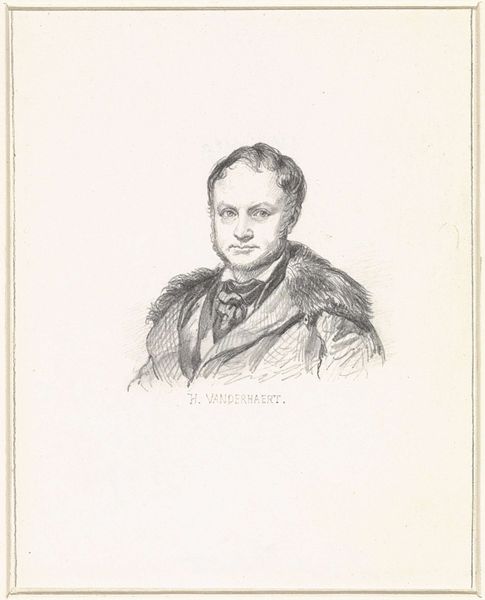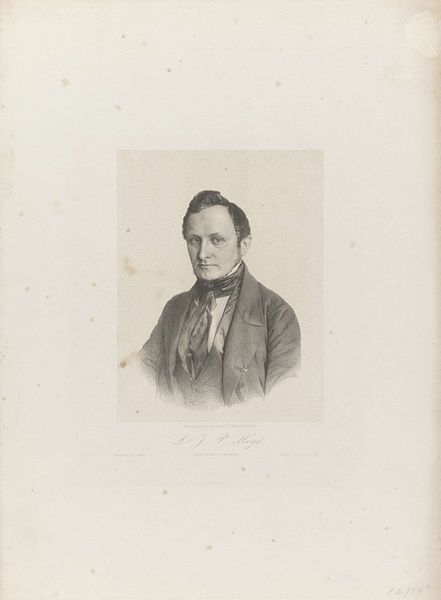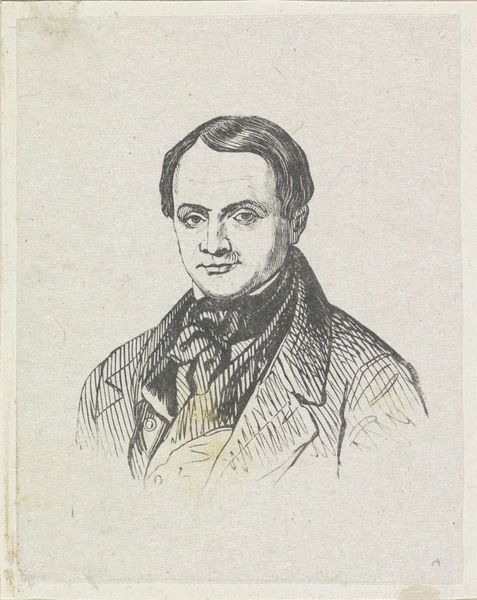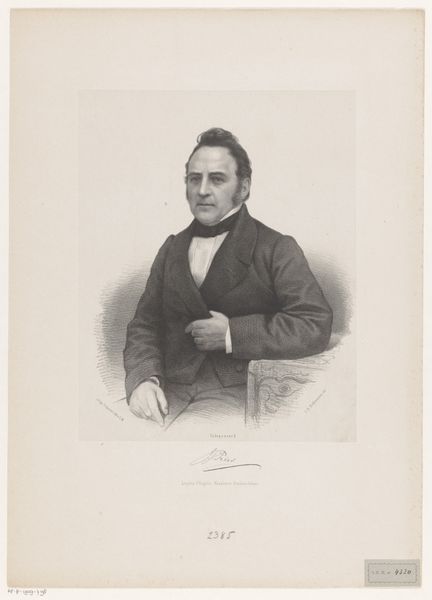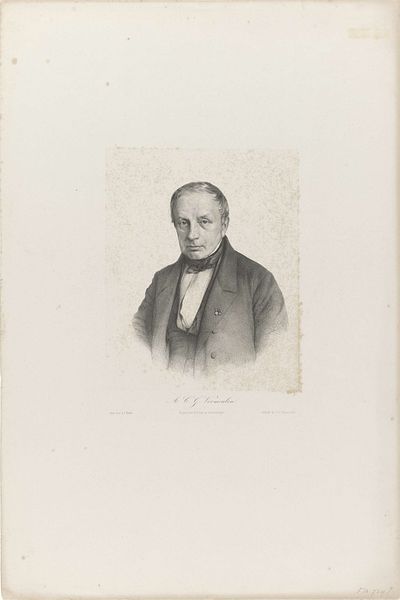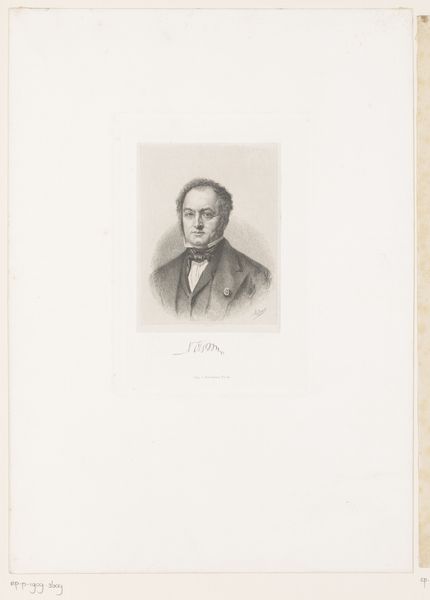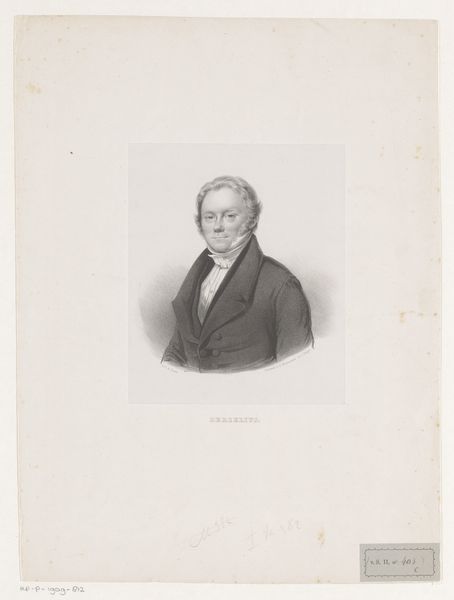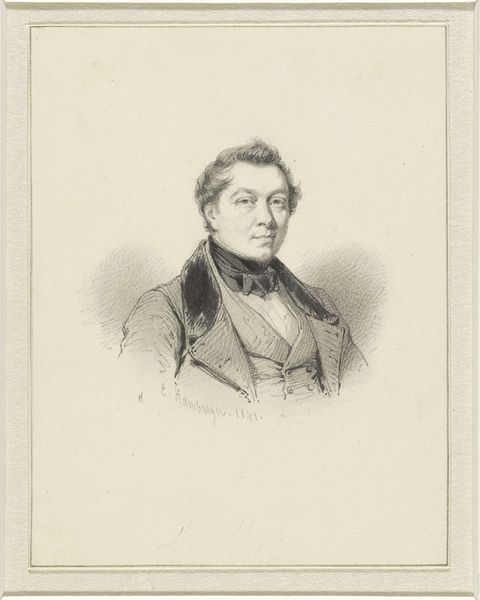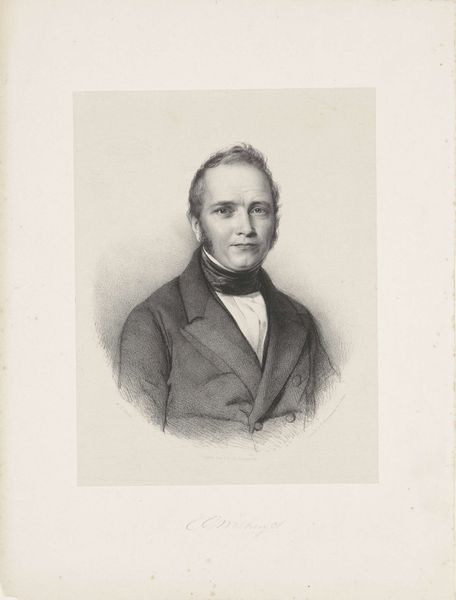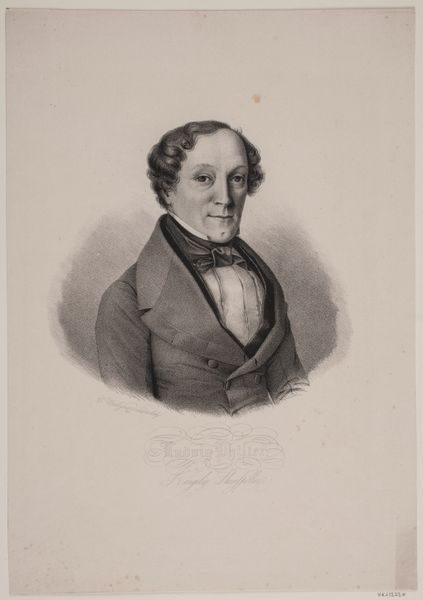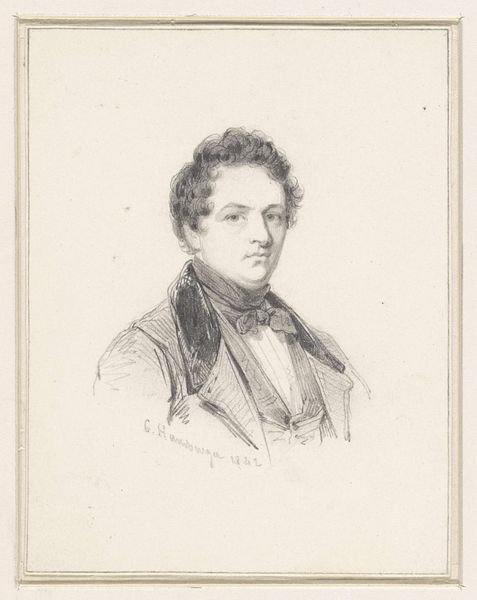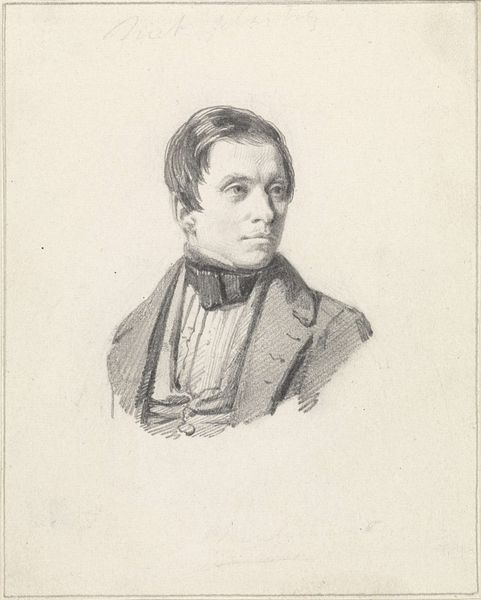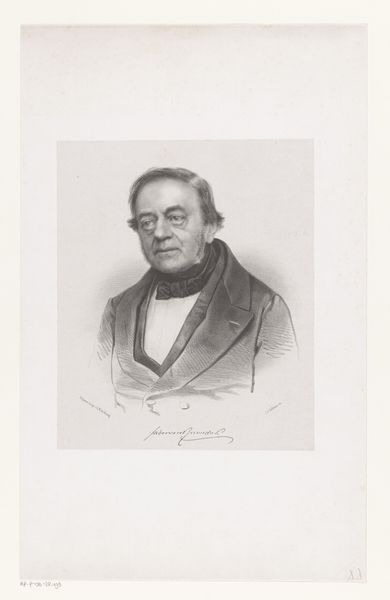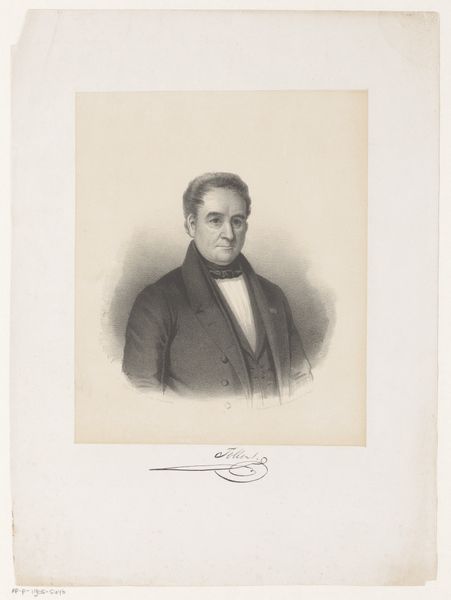
drawing, pencil
#
portrait
#
pencil drawn
#
drawing
#
pencil sketch
#
pencil drawing
#
romanticism
#
pencil
#
portrait drawing
#
academic-art
Dimensions: height 120 mm, width 90 mm
Copyright: Rijks Museum: Open Domain
Jean-Baptiste Madou created this self-portrait, a print, with etching around the 1800s in Belgium. At first glance, this intimate portrait seems like a straightforward likeness, but it also speaks volumes about the artist's self-perception and aspirations within the social structures of his time. Madou presents himself as a respectable figure, with a neat coat and carefully arranged necktie, reflecting the rising importance of bourgeois identity and values in 19th-century Europe. The etching technique, with its fine lines and delicate shading, adds to the sense of refinement and control. This image also tells us about the institutional history of art at the time. As art academies gained importance, artists like Madou sought to establish their credentials and gain recognition through self-representation. Prints like these were also easily disseminated, helping artists promote their work and build a reputation beyond the confines of the traditional salon system. To fully understand Madou's artistic choices, we can turn to archival material, exhibition records, and period publications. By exploring these resources, we can gain deeper insights into the social and cultural context that shaped Madou's art and his understanding of his role as an artist in society.
Comments
No comments
Be the first to comment and join the conversation on the ultimate creative platform.
